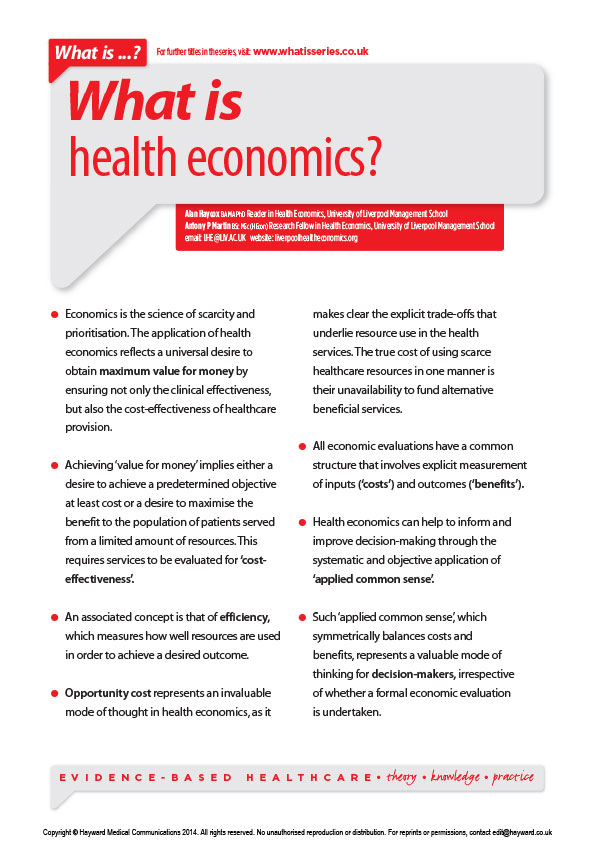What is health economics?
£4.00 excluding VAT
Authors: Alan Haycox and Antony Martin
Economics is the science of scarcity. The application of health economics reflects a universal desire to obtain maximum value for money by ensuring not just the clinical effectiveness, but also the cost-effectiveness of healthcare provision.
Achieving ‘value for money’ implies either a desire to achieve a predetermined objective at least cost or a desire to maximise the benefit to the population of patients served from a limited amount of resources. This requires services to be evaluated for ‘cost-effectiveness’.
An associated concept is that of efficiency, which measures how well resources are used in order to achieve a desired outcome.
Opportunity cost represents an invaluable mode of thought in health economics, as it makes clear the explicit trade-offs that underlie resource use in the health services. The true cost of using scarce healthcare resources in one manner is their unavailability to fund alternative beneficial services.
All economic evaluations have a common structure which involves explicit measurement of inputs (‘costs’) and outcomes (‘benefits’).
Health economics can help to inform and improve decision-making through the systematic and objective application of ‘applied common sense’.
Such ‘applied common sense’, which symmetrically balances costs and benefits, represents a valuable mode of thinking for decision-makers, irrespective of whether a formal economic evaluation is undertaken.
